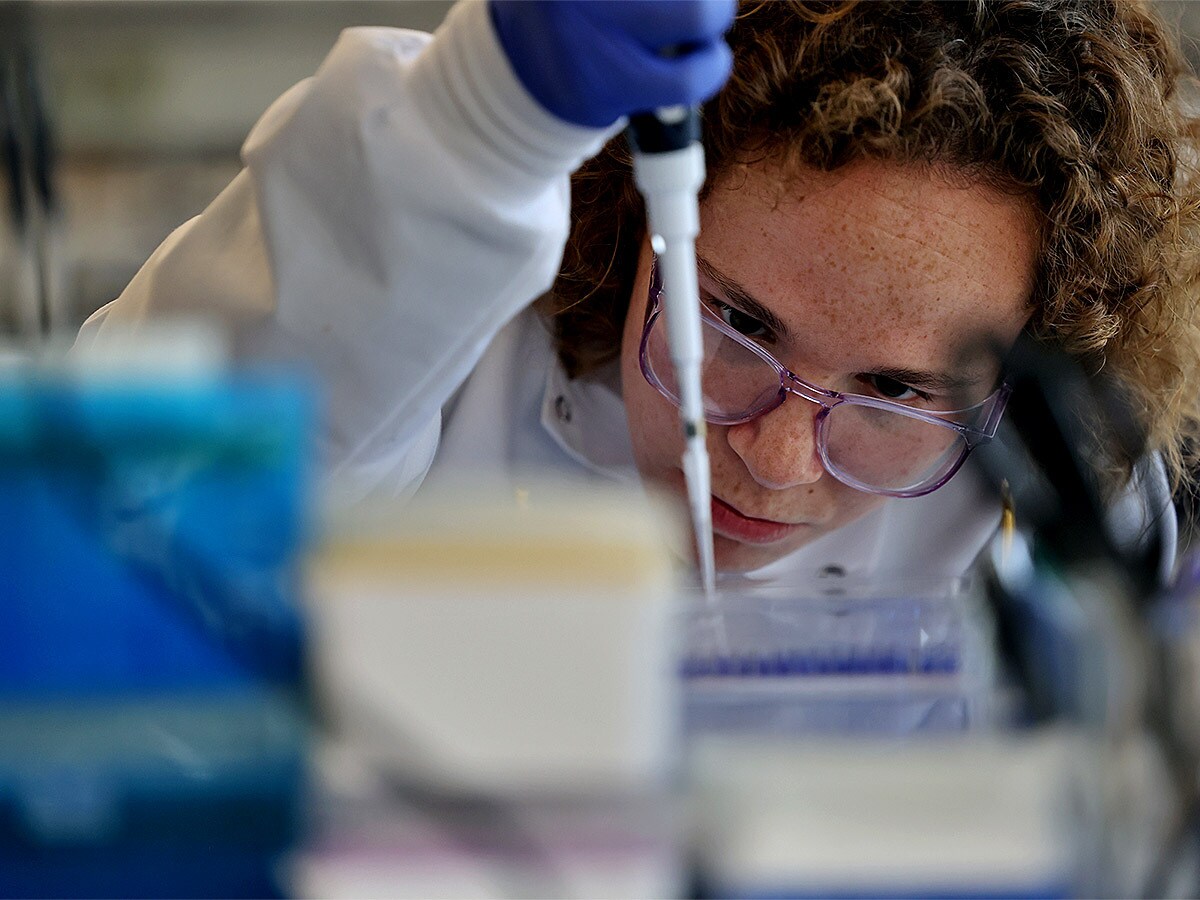Biotech stocks, including Dechra Pharmaceuticals and GSK, have struggled this year as the industry loses its pandemic lustre. While some companies such as AstraZeneca have largely bucked the downtrend, others have turned to acquisitions and new trials to bolster profits and, hopefully, share prices.
Biotech stocks AstraZeneca [AZN.L], Dechra Pharmaceuticals [DPH.L] and GSK [GSK.L] have struggled amid the broad market shift to value. Many investors that previously favoured the industry have shifted away in recent months in the search of safer assets. The VanEck Biotech ETF [BBH] has dropped 16.5% since the beginning of the year.
AstraZeneca, however, has been able to shake off the challenging market environment and has seen its share price rise nearly 22% over the same period, making it one of the only FTSE 100 shares sitting in the green this year. GSK shares, however, have dropped 7%, while Dechra Pharmaceuticals has been the biggest faller out of the group after losing 50.5% of its value.
During the pandemic, investors rushed in to snap up shares in existing biotech and pharmaceutical companies, pushing the industry towards extremely high valuations. This resulted in overvaluation, followed by a crash for many companies on the market. As central banks raise interest rates, investors have been shifting away from potential risk. In the meantime, however, lower valuations among biotech companies are bringing some investors to reconsider opportunities within the sector.
AstraZeneca shares boosted by strong revenue
AstraZeneca has led the pack so far this year. In its half-year results released at the end of July, the company announced a substantial 48% increase in revenue, which jumped to $22.2bn. The group saw growth from all its disease areas but was particularly boosted by the addition of revenues from its recently bought Biotech arm, Alexion.
Alexion, which the group agreed to buy for $39bn at the end of 2020, contributed $1.8bn in revenues to AstraZeneca in the second quarter alone, out of which $1bn came from operations within the US. The biotech arm makes direct sales in 20 other countries, and has partnerships that allows it to service 30 others..
Revenues from AstraZeneca’s oncology operations also performed well in the first half of the year and jumped 22%. The company was hit by growing cost pressures as selling, general and administrative expenses grew to $9.5bn in the first half of 2022 from $6bn for the same period in the year before.
Dechra Pharmaceuticals targets US expansion
The Dechra Pharmaceuticals share price has performed the worst out of the pack so far this year, dropping 50.5% year-to-date. The company, which develops and markets veterinary products, soared on financial markets during the pandemic when consumers focused more of their disposable income on their pets. Since then, it has since hinted at lower future growth as covid tailwinds die down.
For the year ending 30 June, the group reported revenue growth of 12% year-on-year, reaching £681.8m. However, CEO Ian Page noted that the market had returned to “normal levels of trading post the impact of Covid-19” and suggested that future growth may slow as a result.
At the end of August, the group announced the acquisition of Californian-based veterinary medicine manufacturer Med-Pharmex for £221.5m, in an effort to expand the group’s US operations. The newly acquired company predominately produces white-label products that Dechra is planning to shift over to its in-house brand, thereby expanding its existing portfolio.
GSK leads new vaccine race
The share price for UK-based pharmaceutical and biotech company, GSK, has dwindled by 7% since the beginning of the year. The shares suffered in August following lawsuits linking its previously sold heartburn drug Zantac to cancer. While Haleon, the subsidiary responsible for Zantac, has since spun off in a demerger. Nevertheless, Morgan Stanley estimates that damages could sit at $45bn, with GSK liable for 30-60% of the penalty. Over the course of August, shares lost 17.6% of their value, and have since recovered a meager 4.8%.
In brighter news for GSK shares, results of a recent vaccine trial suggest that the company’s preventative for the respiratory syncytial virus (RSV) may be more effective than rival Pfizer’s. News of the results on 13 October boosted shares 1.6% in the following day, and the stock has continued its rally to 8.6% since.
Estimates suggest that the market for the RSV vaccine could be worth $6bn. A share of that might just be what GSK needs to restore investor confidence.
Disclaimer Past performance is not a reliable indicator of future results.
CMC Markets is an execution-only service provider. The material (whether or not it states any opinions) is for general information purposes only, and does not take into account your personal circumstances or objectives. Nothing in this material is (or should be considered to be) financial, investment or other advice on which reliance should be placed. No opinion given in the material constitutes a recommendation by CMC Markets or the author that any particular investment, security, transaction or investment strategy is suitable for any specific person.
The material has not been prepared in accordance with legal requirements designed to promote the independence of investment research. Although we are not specifically prevented from dealing before providing this material, we do not seek to take advantage of the material prior to its dissemination.
CMC Markets does not endorse or offer opinion on the trading strategies used by the author. Their trading strategies do not guarantee any return and CMC Markets shall not be held responsible for any loss that you may incur, either directly or indirectly, arising from any investment based on any information contained herein.
*Tax treatment depends on individual circumstances and can change or may differ in a jurisdiction other than the UK.
Continue reading for FREE
- Includes free newsletter updates, unsubscribe anytime. Privacy policy





